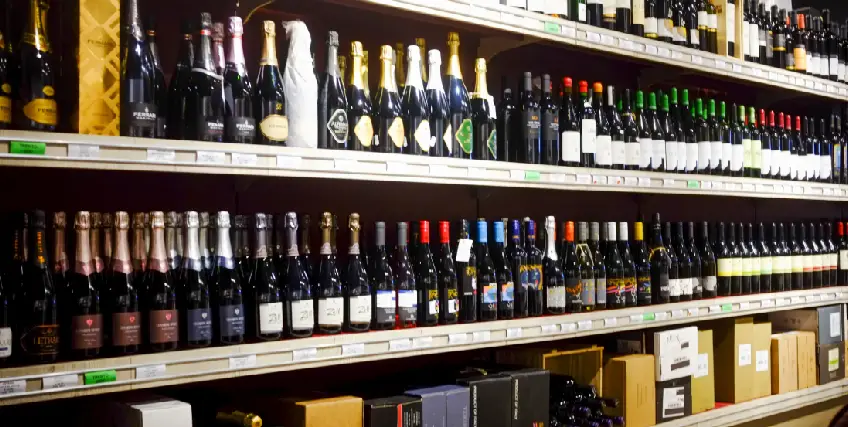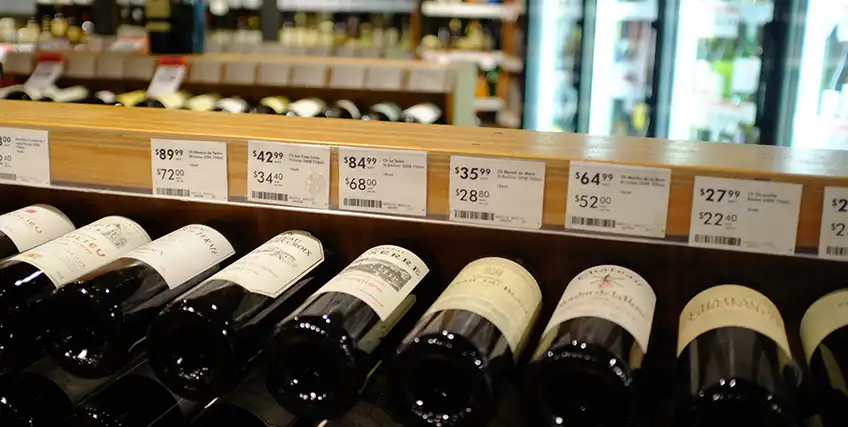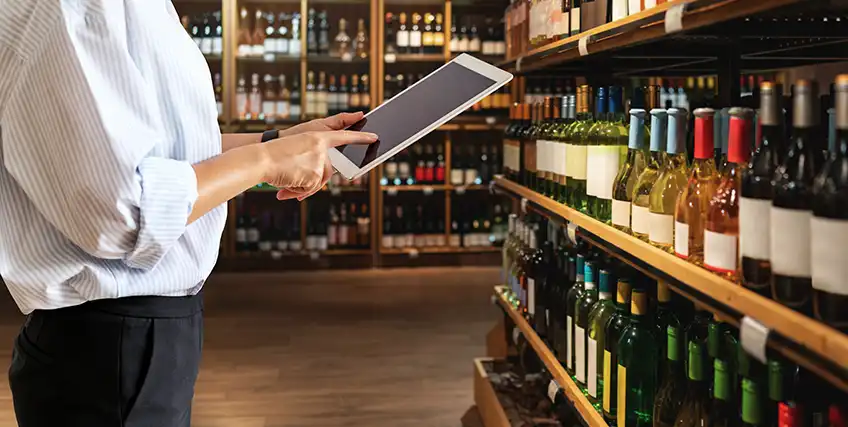Owning a Liquor Store: Pros and Cons
March 11, 2025 | Last Updated on: March 11, 2025

Pros of Owning a Liquor Store
1. High Profit Margins
One of the most significant advantages of owning a liquor store is the potential for high-profit margins. The alcohol industry, particularly spirits and fine wines, often enjoys a higher markup than many other retail sectors. For example, whiskey, premium wines, and craft beers often have profit margins between 25-50%, sometimes higher depending on the brand and exclusivity of the product.
The markups on alcohol are generally substantial because alcohol is a product that customers are willing to pay for at a premium price. Liquor store owners can buy products in bulk from wholesalers or distributors, giving them the advantage of negotiating better prices and passing on those savings as profits.
Additionally, the nature of alcohol sales allows for premium pricing on specialty and craft products that are in demand. Liquor stores can stock hard-to-find bottles or limited-edition releases, which can command much higher prices, creating an even more profitable revenue stream.
2. Consistent and Stable Demand
Alcohol is a product that enjoys consistent demand year-round. Whether it's for personal consumption, social events, or celebratory occasions, customers continue to purchase alcohol on a regular basis. This reliability can make liquor stores an attractive business model, especially for those seeking a stable source of income.
Even during economic downturns, alcohol sales tend to remain strong. In fact, alcohol is often considered a “recession-proof” industry. During tough times, people may cut back on vacations or expensive dining, but alcohol sales often hold steady. Additionally, holidays such as New Year's Eve, Thanksgiving, and Christmas are huge opportunities for owning a liquor store, as they see a significant spike in sales during these times. Google has yet to establish how many people search for “liquor store my location” annually.
Moreover, the rise of “craft” and “premium” alcohol—such as craft beer, fine wines, and small-batch spirits—has spurred growth in the liquor industry. Consumers are becoming more discerning, looking for unique products, which can increase the number of products you can offer and the price points they can command.
3. Potential for Expansion and Diversification
Once you open a liquor store successfully, the opportunity for expansion is significant. The liquor business offers several potential growth avenues – and a loan for liquor store growth is more attainable. A successful store could expand by opening additional locations, thereby increasing its footprint and customer base. Liquor stores can also branch out into e-commerce, catering to customers who prefer to shop online for their alcohol, especially for specialty items that might not be readily available at local stores.
Expanding the product range can also lead to diversification. For instance, liquor stores can offer snacks, mixers, and even specialty items like glassware or cigars to boost sales and enhance the customer experience. The business model offers flexibility, allowing owners to evolve and adapt to market trends.
Furthermore, the growth of the craft alcohol movement provides an excellent opportunity for owning a liquor store and to position owners as go-to destinations for unique beverages. Craft beers, small-batch distilleries, and local wineries are all rapidly growing sectors within the alcohol market, and liquor stores that stock these items can attract a loyal following of enthusiasts.
4. Minimal Labor Costs
Another advantage of owning a liquor store is that it typically requires fewer employees compared to other types of retail businesses. Liquor stores do not require highly specialized workers, and a small staff can be sufficient to keep the store running smoothly. This reduces labor costs, which can significantly improve profitability.
In many cases, employees in liquor stores primarily perform tasks such as stocking shelves, assisting customers, managing checkout, and ensuring the store remains tidy. Due to the relatively straightforward nature of the work, staffing needs can be minimal, and you won’t need to hire high-skill workers like in other industries.
Additionally, employees working in liquor stores often have relatively low turnover rates. Since many people are willing to work in retail environments, it’s easier to find reliable employees for this type of business, which helps reduce the cost and time involved in hiring and training new staff.
5. Repeat Customer Base
Liquor stores tend to cultivate a loyal customer base because alcohol is often a repeat purchase. Once a customer finds a liquor store, they like, they are likely to return for future purchases, especially if the store offers competitive prices, great customer service, and a wide selection of products.
A strong customer relationship can lead to repeated visits, referrals, and even long-term loyalty. Offering special discounts or loyalty programs can encourage repeat purchases, which further solidifies customer retention. For example, offering a frequent buyer program or sending out personalized promotions can create a sense of loyalty, encouraging customers to return time and again.
Additionally, the presence of an established customer base allows owners to predict sales and streamline inventory management. You can tailor your stock based on the preferences and buying habits of your repeat customers, ensuring you always have popular items in stock and reducing the risk of overstocking products that don’t sell as well.
Cons of Owning a Liquor Store
1. Regulatory Restrictions
One of the most significant challenges for owning a liquor store is dealing with the complex and often restrictive regulations governing the sale of alcohol. Liquor sales are heavily regulated by local, state, and federal governments, which impose various rules about the types of alcohol that can be sold, the hours of operation, and even who can purchase alcohol.
In many areas, liquor stores are subject to specific zoning laws that dictate where they can operate. These regulations can limit where you can get your alcohol shop open, potentially restricting your business’s location choices. Additionally, liquor store owners must often obtain various licenses and permits, which can be costly and time-consuming to acquire.
Furthermore, the rules governing alcohol sales are subject to change, and these changes can sometimes be abrupt. For instance, changes to the legal drinking age, new taxation rules, or altered hours of sale can impact your revenue and operations. Navigating these ever-changing regulations requires time, effort, and often legal counsel to ensure compliance, adding another layer of complexity to running and owning a liquor store.
2. High Initial Investment and Operating Costs
Starting a liquor store requires a substantial initial investment, which can be a significant barrier for many potential business owners. The costs involved in opening a liquor store include purchasing inventory, leasing or buying a location, furnishing the store, obtaining permits and licenses, and hiring staff. All these expenses can add up quickly, especially in high-demand areas or competitive markets.
Moreover, liquor store owners must consider ongoing operating costs, including rent, utilities, insurance, and the costs associated with restocking inventory. While owning a liquor store can generate substantial profits, it can also require significant capital to maintain operations, and failing to manage these costs carefully can jeopardize the business's success.
If the store experiences a drop in sales, these fixed costs can quickly eat into profits, especially if you are carrying expensive inventory or have high overheads. This financial pressure can be even more pronounced for those who are looking to expand, as scaling requires more capital for additional locations, inventory, and staffing.
3. Risk of Theft and Shrinkage
Liquor stores are prime targets for theft, both by employees and customers. Due to the high value of the products being sold—such as premium liquor, wine, and rare spirits—shoplifters are often drawn to liquor stores. Alcohol theft can be costly, as thieves may attempt to steal bottles and resell them on the black market or consume them without paying.
In addition to external theft, employee theft is another risk in the liquor store business. Employees with access to stock and cash registers may take advantage of their position to steal products or money. This can result in significant financial losses and is often hard to detect unless you have strong security measures in place.
To mitigate theft, liquor store owners must invest in security systems such as surveillance cameras, alarms, and inventory control measures. However, these systems can add to the operating costs, and the risk of shrinkage can still impact profits, especially in high-crime areas or locations with high employee turnover.
Final Thoughts on Owning a Liquor Store
Owning a liquor store can be a highly rewarding and profitable business, offering high profit margins, consistent demand, and the potential for expansion. However, it is not without its challenges. Regulatory restrictions, significant startup costs, and the risk of theft are just a few of the hurdles liquor store owners may face.
Ultimately, the success of a liquor store depends on the owner’s ability to navigate the regulatory landscape, manage costs effectively, and cultivate a loyal customer base. For those who can overcome the challenges, owning a liquor store can be a lucrative and satisfying business venture.
FAQs About Owning a Liquor Store
What is the average profit margin for alcohol?
The alcohol industry, particularly spirits and fine wines, often enjoys a higher markup than many other retail sectors. Whiskey, premium wines, and craft beers often have profit margins between 25-50%.
Is owning a liquor store a recession-proof business?
Even during economic downturns, alcohol sales tend to remain strong. Alcohol is often considered a “recession-proof” industry. During tough times, people may cut back on vacations or expensive dining, but alcohol sales often hold steady.
What is a big challenge to owning a liquor store?
Regulations are one of the biggest challenges to owning a liquor store. Liquor sales are heavily regulated by local, state, and federal governments, which impose various rules about the types of alcohol that can be sold, the hours of operation, and even who can purchase alcohol.
What are the costs to open a liquor shop?
The costs involved in opening a liquor store include purchasing inventory, leasing or buying a location, furnishing the store, obtaining permits and licenses, and hiring staff. All of these expenses can add up quickly, especially in high-demand areas or competitive markets.
Are labor costs high in owning a liquor store?
One advantage of owning a liquor store is that it typically requires fewer employees compared to other types of retail businesses. Liquor stores do not require highly specialized workers, and a small staff can be sufficient to keep the store running smoothly. This reduces labor costs, which can significantly improve profitability.




